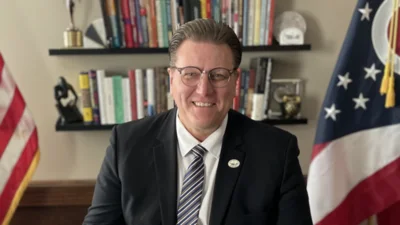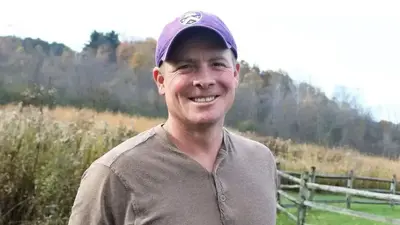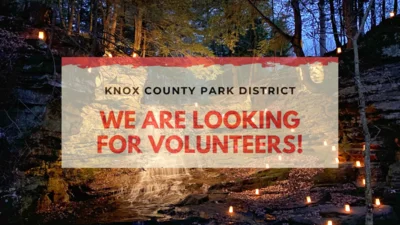With the Ohio Power Siting Board (OPSB) April 4 hearing looming closer, local advocates are urging those opposed to industrial solar projects in Knox County to attend and express their views.
The hearing is increasingly recognized as a critical juncture for Knox County residents to articulate their concerns over the Frasier Solar Project and potentially sway the outcome of the contentious proposal.
Knox Smart Development’s Jared Yost underscored the vital role of community engagement in the upcoming hearing, describing it as pivotal to the process.
“Everybody that wants to speak will come and sign in, and everybody will be allowed to speak,” Yost told the Mount Vernon News. “You’re limited to five minutes. They take everybody's input here very seriously, and really weigh heavily on the public's input as to whether or not they approve or deny the permit for this project.”
Yost expressed concerns about the composition of supporters expected to attend, noting that many would likely be union workers benefiting from the project's construction rather than local residents.
He underscored the importance of local voices, particularly those directly affected by the project, to counterbalance external influences.
“The vast majority of the people don't even live in these townships who own this land that they're leasing,” Yost said.
Referring to past OPSB cases, Yost stressed that projects faced greater scrutiny and potential rejection when met with substantial public opposition. He urged community members to seize this opportunity to speak out against the project, emphasizing that individual testimonies carry significant weight in the decision-making process.
“It is the most important part of this entire process for all of the public, because they do take into account when people send emails and write in and send in public comments, but they take people speaking with more weight. That's what they have told us themselves,” he said.
Yost added that 15 out of the county’s 22 townships have passed resolutions creating exclusionary zones.
“One more township last night passed a resolution asking the county commissioners to set them as an exclusion zone and that was Liberty Township. So we're now up to 15,” he said. “If there's another thing that's going to help us, it will be the fact that we do now have so many townships passing these resolutions, asking the commissioners to set them as an exclusion zone.”
The OPSB will gather sworn testimony in the presence of board members, a judge and a court reporter tasked with recording all testimonies.
The event will take place at Knox Memorial Theater. it was originally scheduled to be held at the Woodward Opera House but the venue was changed to accommodate a larger audience.
In a Knox Smart Development town hall held at Knox Memorial Theater on Feb. 24 journalist Robert Bryce shed light on Ohio's significant role in rejecting or restricting wind and solar projects, accounting for nearly a quarter of such cases in the United States.
Bryce stressed the importance of engaged elected officials and effective regulation in the more than 620 rejections or restrictions throughout the country since 2015.
“Almost a quarter of all the rejections or restrictions on wind and solar in the United States have happened here in Ohio,” Bryce said.
Bryce criticized mainstream media for neglecting these critical issues and pointed out instances where Democratic-led states have overridden local opposition, suggesting a collusion between powerful interests and political agendas.
Knox County Commission candidates Barry Lester and Bob Phillips have been rallying the county’s townships to vote for exclusionary zones for large-scale solar projects.
Despite legal complexities surrounding existing projects, including a partially grandfathered clause, the fight to maintain local autonomy in decision-making regarding solar installations remains robust.






